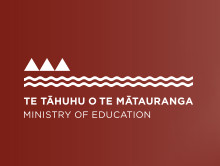Ōku hoa hōhā
nā Keti Kaka
He whakarāpopoto
This poem shares the experience of a child who has kutu. The activities of these unwelcome visitors are described. The poem explains how the child and his mother treat this condition.
Ngā āhuatanga i roto i te tuhinga
He whatu tūkanga
- The poem appeals to the readers' sense of manaakitanga.
- The poem provides an opportunity to explore the need to behave in a responsible manner when a person's health can affect others.
He whatu tamariki
- The poem provides a non-threatening opportunity to explore issues surrounding head lice.
He whatu pānui
Hei tautoko i te kaipānui
- The text is laid out in the form of a poem.
- Parts of the poem are repetitive.
- Rhythmical reading is encouraged by the use of speech marks and exclamation marks.
- Each verse has four short lines.
Kia mataara!
- Some students may find certain words and ideas challenging. (See 'He kete kupu' and 'Hei wānanga' for more information.)
- Help students to eliminate the stigma associated with head lice by emphasising that anyone can get them.
He kete kupu
Please ensure that your students are familiar with the words in this 'He kete kupu' and are able to use them confidently.
| panga | aim a blow at |
| panaia | thrust or drive away |
| ngāokooko | feel a tickling sensation, itch |
| mātenga | head |
| pātito | sore, scab |
| kauawhiawhi | cosy, snug |
| whāki | reveal, disclose |
Hei wānanga i te reo
Spend time exploring the application of the negative phrase 'Kīhai ... i ...'.
Explain that this phrase is always used in the past tense, e.g.
- Kīhai au i haere. I did not go.
- Kīhai ia i rongo. She did not hear.
Hei whakaihiihi
- Read the poem to the students.
- Introduce new words. (See 'He kete kupu' and 'Hei wānanga i te reo' for more information.)
- Allow students to share their thoughts on head lice.
- Ask the students to read the poem to find a phrase that describes the type of conditions that head lice like.
Hei wānanga
- Research what head lice are and how they affect people.
- Students could compose their own simple poems.
Hei mahi
| Ngā pūkenga | Learning outcomes | Learning experiences |
|---|---|---|
| Students will be able to: | Students could: | |
| Te Reo: Pānui, kōeke 3 Ko te tāutu i ngā ariā matua me ngā ariā tautoko o roto i te kōrero. | recognise the gist of a topic and the supporting evidence from within the text. | correct sentences from the text that you have recorded incorrectly. |



